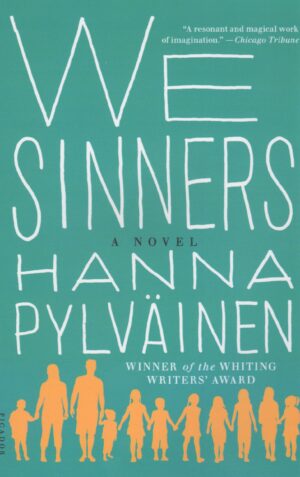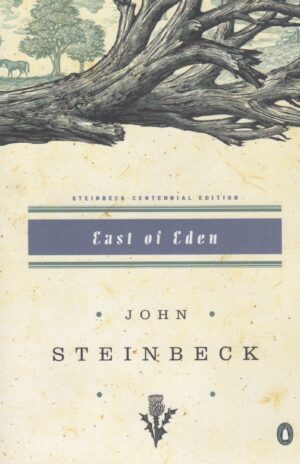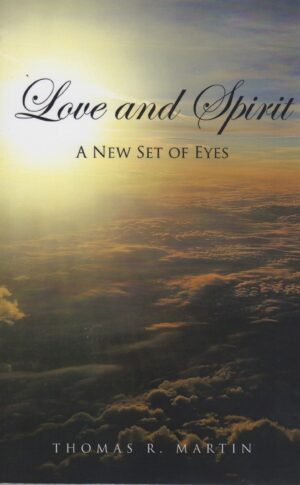
We Sinners by Hanna Pylväinen (2012. Picador. 978-1-250-3218-8)
I saw that the author of this novel was selected by Finlandia National Foundation’s 2024 Lecturer of the Year. Because I’d not read any of her work and I have an interest in Laestadianism (a branch of Lutheran fundamentalism associated with the Apostolic Lutherans in my neck of the world), I decided to make this slender novel my book club pick for the month of February.
Pylväinen knows of what she writes, having been raised in a conservative Christian family adhering to the doctrines first pronounced by Lars Levi Laestadius in the mid-19th century when Lars, an indigenous Sami Lutheran pastor from Laplap (Arctic Norway, Sweden, and Finland), underwent a personal epiphany. The “sins” prohibited by Laestandism include dancing, alcohol, and gambling: a direct result of Laestadius’s own father’s addiction to alcohol and the family’s resulting poverty. In We Sinners, the author chronicles a contemporary Finnish American family (also struggling with poverty in spite of their piousness) adhering to this strict form of Lutheranism and, despite the introduction of strict parenting, homosexuality, doubt, alcohol use, and other sinful conduct into this family of nine children. Pyläinen renders each of the children deftly, with love, and without severe judgment for the parents or their chosen faith, though it does become confusing at times, with so many children, who she is writing about when she switches from one to the next.
In the end, this is a well-written exploration of a little-known part of the Christian faith in a fictional rendering. My one criticism of the book is that, coming in at only 189 pages while covering nine children and their parents makes the story feel more like a series of vignettes than a novel. But that having been said, it’s well worth the read: my book club universally concurred.
4 stars out of 5.

East of Eden by John Steinbeck (2002: Centennial Edition. Penguin. 0-14-200065-5)
Steinbeck reportedly considered East to be his masterpiece. I’m not sure about that given the beauty and story of Grapes of Wrath, Of Mice and Men, and some of his other works. But I will say this: in creating Cathy Ames, the female antagonist of this morality tale set in the Salinas Valley, Steinbeck drew one of the most convincing tales of female sociopathy ever put to paper. That alone is sufficient reason to consider this work as one of the author’s most ambitious.
The plot’s basic premise is not hard to extract despite the tale’s heft and volume. Good and evil exist in this world, not only within the same family, but within the same person. Ambiguously, we never know whether Charles Trask, the roustabout and quick-to-anger son of Cyrus Trask (a heavy handed Civil War veteran who is essentially an embezzler and crook), or his kinder, gentler, more polished brother, Adam, impregnated Adam’s wife (Cathy, who wiggled her way into both men’s beds), the result of which is a set of twin boys, Caleb and Aron. The Biblical links to the story of Cain and Abel are not hard to discern in either the Charles/Adam or the Caleb/Aron plots. It’s this simplistic connection that many critics of the book found to be its deepest flaw. I disagree.
The interjection of Cathy, who leaves the twins with Adam and vanishes into the world of prostitution, into the well-known Biblical tale makes the plot sing and keeps the reader guessing. Originally released in 1952, the themes of Cathy’s life post-abdication from the Trask home, (she becomes the madam of a house of ill-repute that prides itself on fetishes and sadism) must have caught the eye of more than one censor. Tawdry, raw, and emotionally upsetting as Cathy’s life and immorality may be, it is her tale to be told and one that leaves you, in the end, without a clear resolution of the conflicting themes carried throughout the book.
Is it better than Grapes? That’s in the eye of the beholder … But it’s a book every novelist wishes he or she wrote.
5 stars out of 5.

Love and Spirit: A new Set of Eyes by Thomas R. Martin (2015. Balboa. 978-1-5043-4197-4)
Confession time (pun intended). Tom is a guitarist in the River of Grace praise band at my church, Grace Lutheran ELCA. So consider my review with that connection in mind.
This is a compelling look at what it means to be Christian (not just Lutheran) in a world full of competing faiths. The author discusses Jesus and God and the Holy Spirit in a unified, easy to follow manner, all of which has, at its core, the belief that Love is at the center of the Christian faith (and the world’s other major religions as well) and that it’s this Love (agape love, not lust or romantic love or familial love) that’s indeed behind Jesus and our redemption.
Using the language of the Gospels, the Old Testament, and the Gnostic Gospel of Thomas, the author leads readers on a welcoming and loving journey of Faith; one in which he doesn’t shy away from such questions as, “Can a non-Christian like Ghandi, who did everything Christ-like but wasn’t a believer in the Holy Trinity, be saved by Love?”. The thoughts expressed and ideas and doctrines explored are not new: most of us have questioned, “Hey, but what about good people who haven’t heard the Word, or who have heard it, have acted in a manner Christ would approve of, are full of agape Love, but haven’t converted?” and have, like the author, struggled to find an answer to that query.
This book is a welcome addition to that discussion.
4 stars out of 5
Peace
Mark


